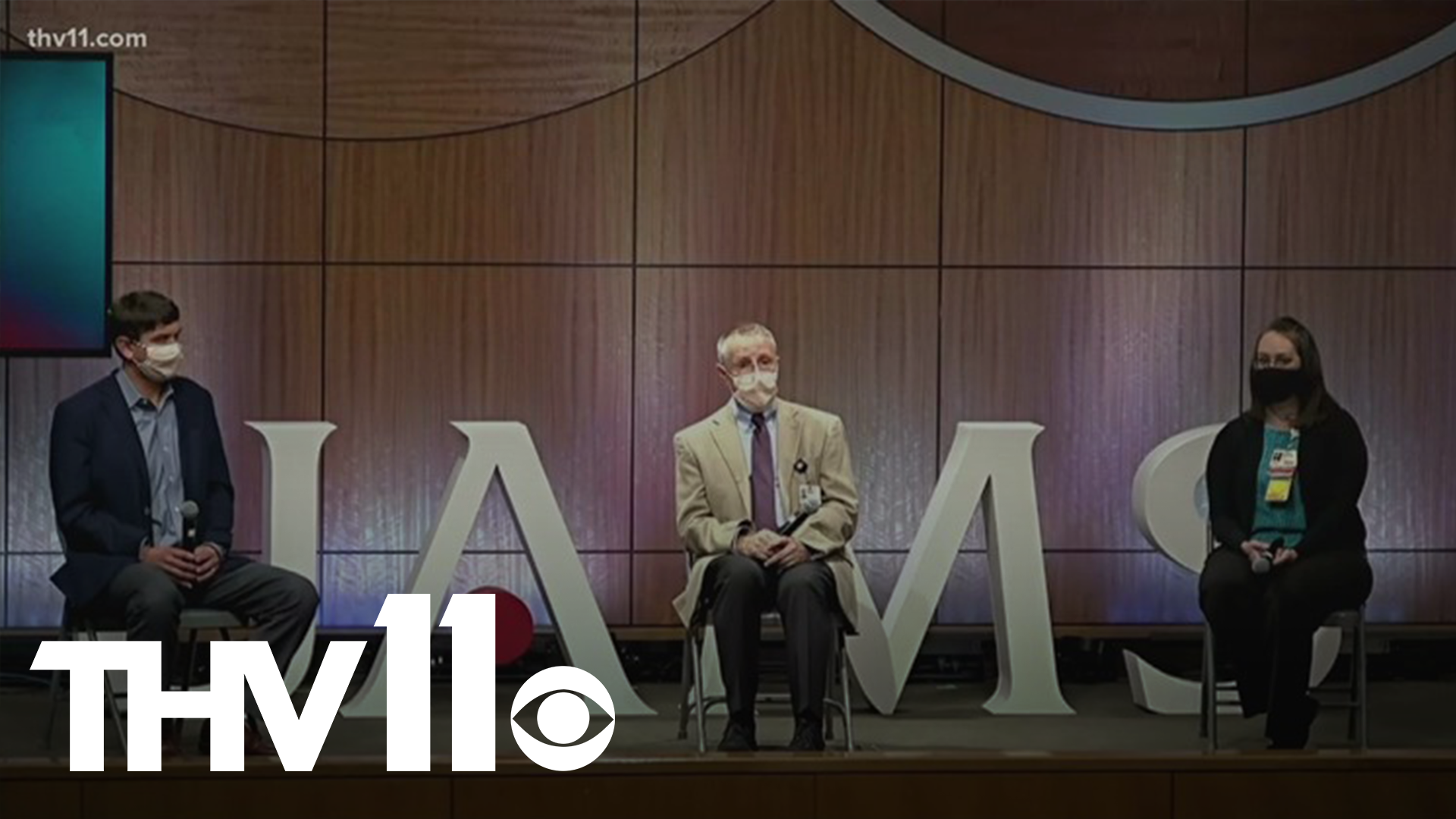LITTLE ROCK, Ark. — Nearly five months ago, THV11 held a roundtable talking to health care heroes about hope. Many thought the pandemic was nearing an end as the vaccine was widely available.
Fast forward to this month, THV11’s Amanda Jaeger sat back down with some of those same people as we see a pandemic far from over; rather, one in its prime.
Five months ago, there was a mix of emotions of exhaustion, excitement, and most of all -- hope. Now, five months later. How are you feeling today?
Dr. Ryan Dare, Infectious Disease Physician: Today, I feel defeated. The delta variant entered Arkansas and we are worse today than we were five months ago.
Dr. Robert Hopkins, Professor Of Internal Medicine and Pediatrics/Chief of the Division of General Internal Medicine: I would say disheartened. I’m an Arkansas native. I've lived here most of my life. I know that we are rugged individuals in a lot of ways in this state. But I had always thought that we pulled together as a society.
Ms. Kimberly Haverstick, Assistant Director of Pharmacy for Infusion Services: I'm very concerned as a health care professional and concerned as a parent of small children.
It's interesting because as COVID has gotten worse and more people get infected, it's almost opened the eyes of more people to see this could happen to me or my family.
Dr. Dare: I watched a grown man cry saying, ‘My daughter's in the hospital at Children's and it's my fault and if she doesn't make it, how am I going to live?’ Hearing that is a not a unique story. I hear it every day. Five of those yesterday in clinic. There was a very healthy guy who said he was burying his son tomorrow. He said ‘I wish I would have tried harder to get them vaccinated.’
Dr. Hopkins: The ones that I really have to control myself on are the ones where well, you know, they say they just didn't take time to get the vaccine or, you know, they say my wife and my kids got it, you know, but I’ve never gotten cold in my life and I didn't need to take this seriously. Now they've got family members or they're critically ill in the hospital.
Here this last week, we've have seen a jump in people getting vaccinations. What are conversations that you've been having?
Dr. Dare: This is a new virus. This is a new pandemic from five months ago. They're getting much sicker with worse outcomes.
Dr. Hopkins: Just coming to the realization that what some may have painted as a hoax, or an overplayed hand of cards, isn’t. This is real.
Six months from now what is the ideal situation? Where will we be in the state of Arkansas?
Dr. Dare: Oh, Christmas time. All right. Holidays. Oh, my gosh, that was terrible. Last year, no grandparents, no distant family get togethers. We don't need do that again. But if things don't change, I don't see a difference.
Ms. Haverstick: I think I would like to say that what we're experiencing right now in Arkansas; low rates of vaccination, high rates of, you know, the spread of the delta variant, I would love for that to be a cautionary tale.
Dr. Hopkins: You know, if we go down the route of people actually taking up the vaccine, wearing their mask, social distancing, washing their hands, doing all of those things that we ask people to do, then we will get through where we are now. That’s if we don't see a big surge coming out of the schools.
Dr. Dare: We've been doing this for a year and a half. We're familiar faces. Everybody hearing this message has probably seen one of us say this before. And if it didn't work last time, it may not work this time. We need more people who have changed their minds about vaccinations, to be super spreaders of information. If science isn't going to work, real stories will.
One positive the doctors noted is that although the situation is grim, doctors are getting better at treating COVID in life and death situations. The one treatment that the FDA has granted authorization for use in the outpatient setting is monoclonal antibodies. Dr. Dare said if you get infected, there's proven data that you will have a 70% decrease in risk of progression to admission or death if you get monoclonal antibody treatment. He said this is worst case scenario and vaccines are the best shot of staying out of hospitals.

